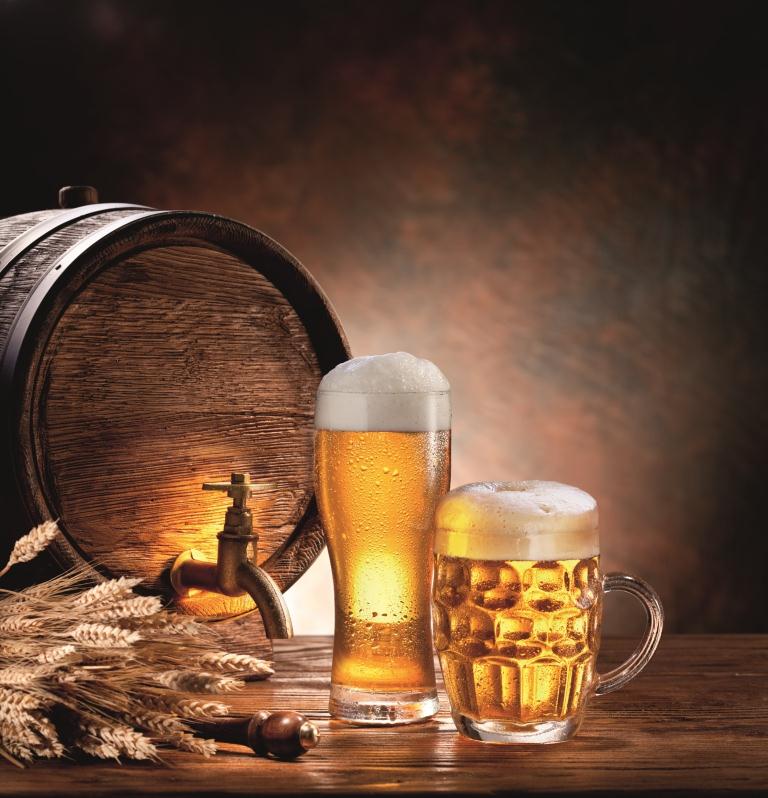Beer to brew and dragons to slay—it’s the top of the to-do list for South Africa’s small but growing brigade of microbrewers.
Brewers may have the dream of creating the perfect amber liquid and the business savvy to unleash it on the world, but the bureaucratic and legal hurdles to get their product to market are nothing short of a Kafkaesque nightmare.
South Africa has around 90 operational microbreweries at present and dozens more backyard brewers regularly making their appearances at brew-offs and small beer tasting events. But more than staking a claim on local palates, they want to capitalize on the craft beer revolution and become major players.
To brew, to distribute and to sell beer requires licenses and here lurks the untamed, fire-spewing monster. The licensing process is a notoriously clunky and costly process by the time paperwork and the attorney or consultant fees are thrown in. Worst of all, there are no apparent reasons why it should be this way.
Ndumiso Madlala is the founder of MadMead, the company brewing Soweto Gold. Madlala is a former master brewer for South African Breweries (SAB). In 2011, he decided to go it alone to become as he calls it a mini-SAB that is able to target the rising black middle class in Soweto.
Loading...
“People in townships are getting robbed because they’re not getting to taste the beer styles that craft brewers are putting out there,” says Madlala.
Madlala is a 51% majority shareholder of his company. He had to secure private funding from a Swedish investor and get sponsorship from the Independent Development Corporation (IDC) to plug huge financial gaps before he even got started. It cost in the region of $790,000 to get his brewery on target to brew three million liters a year when they opened for business at the beginning of the year.

“The license process has cost us R12,000 ($1,184) and we had to use a liquor license consultant too. We had to go through the usual things like tax clearances, police clearances and all of that but we had to wait month after month with no developments,” says Madlala.
Eventually MadMead struck a deal with established microbrewery Nottingham Road in KwaZulu-Natal to piggyback on their license to start brewing.
“You have to secure premises for brewing in a certain area, away from schools and churches and you have to have a lease agreement before you apply, which means you end up paying rent for months and not using it for brewing,” he says.
It is a frustrating wait and a blow to business innovators who are chipping away at a market previously cornered by the giants of SAB and Brandhouse.
Natalie and Stephen Meyer, the co-owners of the Clarens Brewery in the Free State, applied for their license in 2006, which she says may have been a time when licensing was a little easier.
They started out as seasonal home brewers making the most of windfall produce on their cherry and apple farm. When they decided to get into the industry to sell their brew, it cost them around $1,184, including lawyer fees and a four-month wait. When they moved to a more prominent location in the tourist town a few years later they had to reapply for their license. This time it cost them $1,677 and a nine–month wait.
“The typical process is that you have to eventually get a lawyer who starts legal proceedings against the liquor board, giving them 28 days to respond. Only then will the board get into action,” she says.
Meyer is frustrated that as a small business, an entrepreneur and an employer in a sector that ticks many boxes for success, they are not better supported.
“I know guys who have had to wait anything between two and four years and then eventually have to get lawyers on board, which of course costs money, to get a license,” she says.
“It makes no sense,” says Thea Blom, owner of Oakes Brewhouse in Modderfontein, west of Johannesburg.
It is an all-woman microbrewery that is a perfect addition for the historical village within the suburb.
“Craft beers are really on the map right now and we knew this would be a great fit for the village,” says Blom.
But they were forced to brew under court interdict until their license was finally approved, 18 months later.
“With the liquor boards making licensing processes so impossible, it just means more people will simply operate illegally. It’s crazy because the more people you have properly licensed the more people they could have on the tax base and they can audit them anytime,” she says.
Marius Blom of Couzyn Hertzog & Horak attorneys, who does licensing applications in all nine provinces, says the long delays are stifling start-up businesses and tying up the liquor boards in court cases. Costs are ultimately passed onto taxpayers. These numerous failings have left the entire licensing process a sham.
“There is a lack of knowledge of the law; a lack of administration, which can be as basic as proper filing; and a lack of capacity or plain inefficiency,” says Blom of the majority of the provincial boards as well as the National Liquor Authority.
Blom says, in the years after 1994, the National Liquor Authority was decentralized into provincial boards with the intention of making licensing simple and cost effective. The opposite has happened. He adds that while alcohol has been regarded a dangerous commodity for the last 100 years in need of regulation, 90% of all alcohol sellers in this country today do so illegally in unlicensed taverns and shebeens.
Microbrewers though must still face off the dragon of licensing and are left wondering why they are the ones left to put out fires.
Loading...
